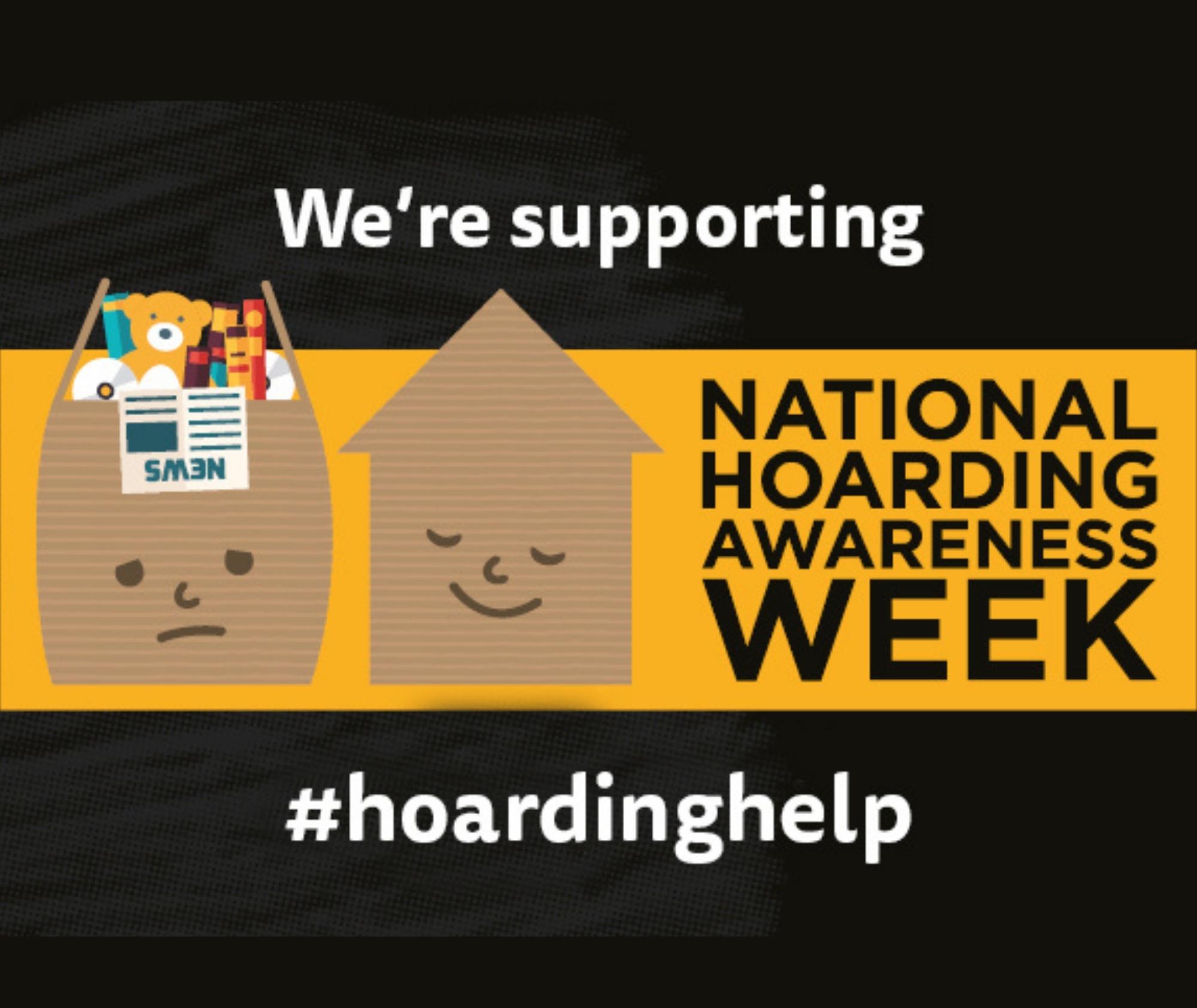With Hoarding Awareness Week starting on 16 May 2022, Compass Support is joining this national campaign to raise awareness around this highly misunderstood mental health condition, which affects at least 1.2 million households across the UK and approx. 22,000 people in Birmingham. This equates to between 2% or 5% of the population.
What is hoarding?
Recognised by the World Health Organisation in 2018, hoarding can be described as “the collecting of, and inability to discard of large quantities of goods, objects or information.”
It can take the form of hoarding objects, animals or data and the condition is considered a sign of self-neglect and often linked to experiences of past loss and trauma.
Whilst some people who hoard have a good insight into their behaviour and the issues that it causes, others may not have the same awareness of the impact it has on their or others’ lives.
Signs of hoarding can be crowded and cluttered living areas where spaces cannot be used for their intended purpose. Some people may have the overwhelming need to save items or present with emotional difficulties getting rid of items no longer of use.
The causes of hoarding
It is hard to identify exactly what causes hoarding, with different people having different reasons as to why they hoard, but it is most commonly linked to experiencing a form of trauma, abuse or loss. It can also be linked to learned behaviour, substance abuse or poor executive functioning. Whatever the reason, it can negatively affect individuals who hoard and their families.
Where to get support
There are several resources on the Compass Support website. These include a copy of the widely used clutter image rating scale, a questionnaire to identify hoarding behaviour, and a Hoarding Ice-Breaker form that can be taken to your GP to help you start talking about your hoarding. Compass Support has also produced a Hoarding Best Practice Toolkit, aimed at professionals and frontline workers supporting people who hoard, which is also available via their website.
Hilary Tomlinson, Health & Wellbeing Project Lead, Compass Support, said:
Hoarding can be a very secretive and hidden disorder. People who hoard can often be embarrassed or scared to ask for help, due to fear of what might happen. Here at Compass Support we work with both frontline workers to build their capacity and understanding of the issue of hoarding, as well as citizens to make positive change around their hoarding behaviour. Our approach is person-centred and recognises the benefits of multi-agency working, with the aim of enabling people to live more safely in their homes and reduce social isolation in their local communities.
As part of its Hoarding Project, Compass Support has set up and runs a regular Hoarding Multi-Agency Pathways Meetings, open to workers from organisations who may come into contact with people who hoard (i.e. housing providers, social workers, care providers, etc) to improve multi-agency communication, maximise local resources and develop best practice methods.
Compass Support is the charitable subsidiary of The Pioneer Group, and this project is funded through Birmingham City Council Prevention and Communities Funding to help support citizens and organisations in the Reddicap and Castle Vale areas with the issue of hoarding.
